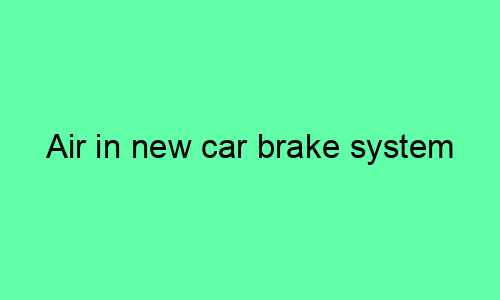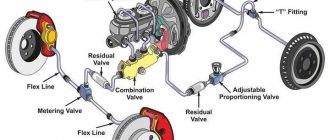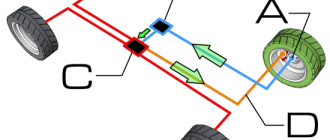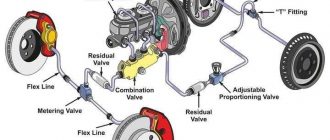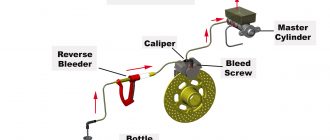Air in New Car Brake System
Introduction
Air in a car’s brake system can cause the brakes to be spongy or ineffective, which can be a serious safety hazard. When there is air in the brake system, the brake pedal will feel soft and spongy, and it will take more effort to stop the car. In some cases, the brakes may not work at all.
There are a few different ways that air can get into a car’s brake system. One of the most common causes is a leak in the brake line. Brake lines are the metal tubes that carry brake fluid from the master cylinder to the brake calipers. If a brake line is damaged or rusted, it can allow air to leak into the system.
Another common cause of air in the brake system is when the master cylinder is replaced. The master cylinder is the main component of the brake system, and it is responsible for generating the hydraulic pressure that is needed to operate the brakes. When the master cylinder is replaced, it is important to bleed the brake system to remove any air that may have entered the system.
Symptoms of Air in the Brake System
The most common symptom of air in the brake system is a spongy or soft brake pedal. When you press on the brake pedal, it will feel spongy and it will take more effort to stop the car. In some cases, the brakes may not work at all.
Other symptoms of air in the brake system include:
* A hissing or gurgling sound when you press on the brake pedal
* A decrease in brake performance
* A pulsation in the brake pedal
How to Fix Air in the Brake System
If you suspect that there is air in your car’s brake system, it is important to have it fixed as soon as possible. Driving with air in the brake system can be dangerous, and it can increase the risk of an accident.
The best way to fix air in the brake system is to bleed the brakes. Bleeding the brakes involves opening a bleeder valve on each brake caliper and allowing the brake fluid to flow out until all of the air is removed from the system.
Bleeding the brakes is a relatively simple procedure, but it is important to follow the instructions carefully. If you are not comfortable bleeding the brakes yourself, you can take your car to a mechanic to have it done.
Preventing Air in the Brake System
There are a few things you can do to prevent air from getting into your car’s brake system:
* Inspect the brake lines regularly for leaks or damage.
* Replace the brake lines if they are damaged or rusted.
* When replacing the master cylinder, be sure to bleed the brake system to remove any air that may have entered the system.
* If you have any work done on your car’s brake system, be sure to ask the mechanic to bleed the brakes afterwards.
By following these tips, you can help to prevent air from getting into your car’s brake system and keep your brakes working properly.
Conclusion
Air in a car’s brake system can be a serious safety hazard. If you suspect that there is air in your car’s brake system, it is important to have it fixed as soon as possible. Bleeding the brakes is the best way to fix air in the brake system, and it is a relatively simple procedure that can be done at home with a few basic tools.
